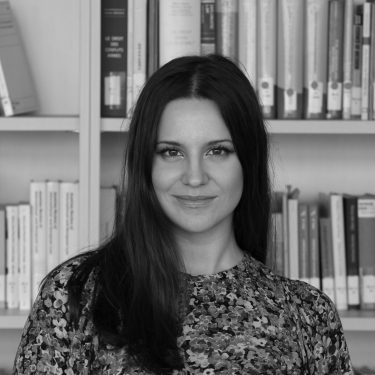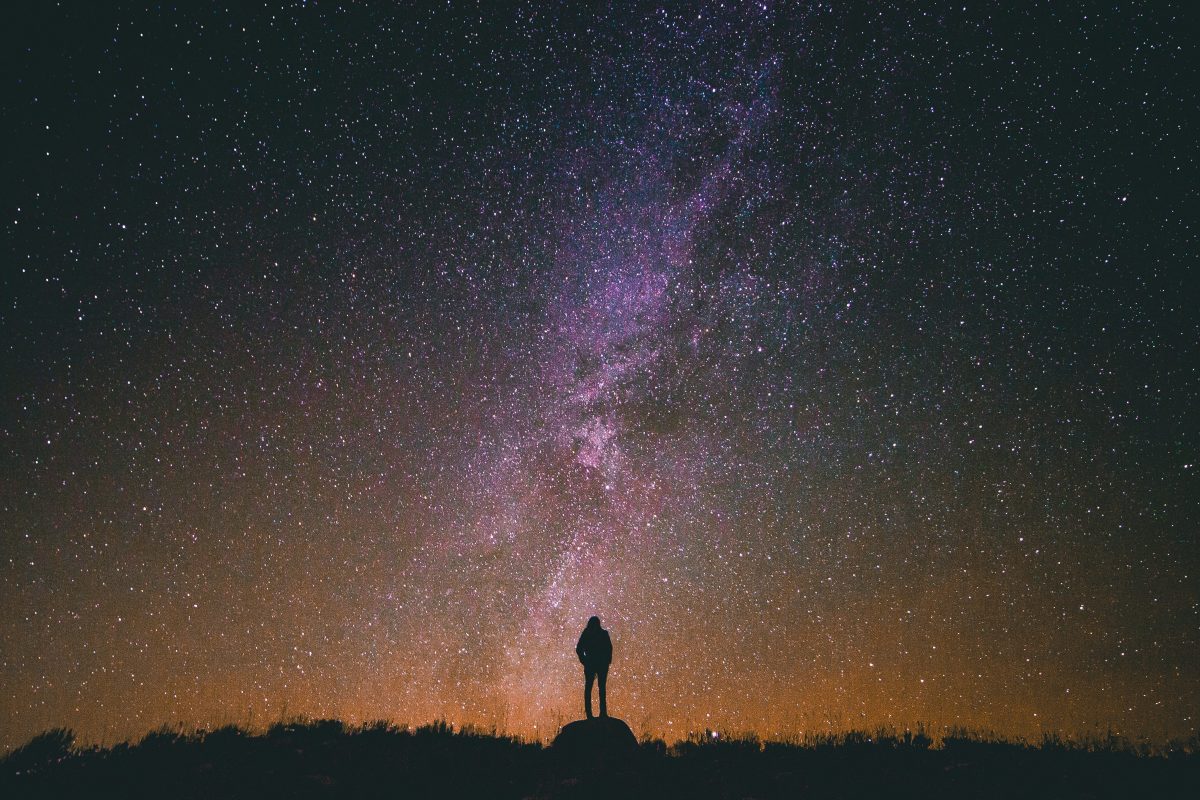Welcome to the latest interview of the Völkerrechtsblog’s symposium ‘The Person behind the Academic’! With us we have Prof. Oona Hathaway, and through the following questions, we will try to get a glimpse of her interests, sources of inspiration and habits.
Welcome Prof. Hathaway and thank you very much for accepting our invitation!
May I first ask, as I usually do, what it was that brought you to academia and what was it that made you stay?
I was captivated by the opportunity academia offers to follow my ideas where they might lead me. I also saw that legal academia could allow me to construct a diverse and creative career – that I could teach and write law review articles or books, but that I could also be directly involved in practice as well. I have stayed because that’s precisely what I have found – I am able to teach and write about the topics that interest me. I also have been able to be involved in government – as a member of the Advisory Committee at the U.S. Department of State and as a Special Counsel to the General Counsel at the U.S. Department of Defense. I also have been able to help shape the law through my role with the American Law Institute’s project on Foreign Relations Law and as president-elect of the American Society of International Law. One joy of academia that I hadn’t fully anticipated beforehand is how much I love working with students. They are brilliant and interesting, and I learn so much from them. I also love seeing what they go on to do in the world after law school. Now that I have been teaching for more than two decades, I have students who are leading academics and practitioners, and I feel grateful to have been part of their journey.
If you were not an academic, what would you be?
I would probably have become a full-time practicing lawyer. When I decided to take my first step into academia – an academic fellowship at Harvard at the end of my clerkship with Justice Sandra Day O’Connor – the other options I had considered were to join a law firm or work in government. If I hadn’t decided to pursue academia, then I think I likely would have done a bit of both over the course of my career.
What raised your interest in international law in particular?
My mother is from the Netherlands, and we visited my large extended family there at least once a year throughout my childhood, often taking the opportunity to visit another country while abroad as well. I attended a public high school in Portland, Oregon, through its international studies magnet program. There I studied Russian and had the chance to travel throughout Eastern Europe (including to East Berlin not long before the Wall fall). I also won a scholarship to spend the summer in Egypt studying Arabic and the history of the region at the American University in Cairo and traveling around the country. That same program brought me to Kuwait on the one-year anniversary of the war during my freshman year at Harvard. Seeing and learning from these different cultures got me interested in thinking about how to build connections and understanding across borders. And seeing the devastation in Kuwait first hand brought home the costs of war, as did hearing my mother recount her earliest memories of living in Nazi-occupied Netherlands and of being liberated by the Americans.
Which are three texts that you would wish all academics working on international law would read?
I’d be lying if I didn’t mention my own book, The Internationalists: How a Radical Plan to Outlaw War Remade the World, which I wrote with Scott Shapiro. That book represents my effort to understand how the modern international legal order came to be. I would also encourage those interested in international law to read the opening statement at Nuremberg delivered by Sir Hartley Shawcross, the British Chief Prosecutor and the Attorney General of Great Britain. That statement was largely drafted by Hersch Lauterpacht, arguably the greatest international lawyer of the last century, whose family members had been murdered in the Holocaust. It represents the effort to meet horrific violence with justice. But it’s also deeply complicated, because the Allies were not themselves held to account for their own legal violations during the war. That makes it both deeply powerful and worthy of reflection. Last would be a piece that turns a critical eye on international law. One such piece is James Gathii’s The Promise of International Law: A Third World View.
What advice would you offer to fellow academics who are losing faith in the value of their work, given several states’ ongoing disregard for international law?
I would begin by saying that I understand that feeling and sometimes share it. But what gives me hope is that the Internationalists that Scott and I wrote about in our book constructed the modern legal order in the wake of the complete collapse of world order that took place in World War I, and they began drafting the UN Charter while World War II was at its worst. If they could keep the faith that law could make a difference even at such moments, then we should be able to as well. I also believe that a crisis can be an opportunity. I believe in the modern legal order, but I also recognize that it is far from perfect. The current moment offers us a chance to consider how we might rethink the rules if the current system is no longer working as intended.
Given the growing restrictions on academic freedom globally, have you ever experienced censorship or felt silenced in your work? How did you respond, and what recommendations would you offer to scholars facing similar challenges?
I sometimes write about topics that are sensitive or controversial. When I am writing about a controversial topic, I try to think about my draft from the perspective of someone who would disagree and see if there are weak points that I should improve or reconsider. And I might share a particularly challenging piece of writing with colleagues that I know don’t entirely agree to seek their feedback to help me make it better. But I do not censor myself. I feel a responsibility to speak and write about matters of international law and to explain and interpret it for a public that might not always find it easy to understand. As academics, our job is to educate – that obligation extends beyond our students to the broader public as well. That’s why I appear on podcasts and radio shows and write op eds. That said, I understand if academics who are more vulnerable than I am – who are untenured, for instance – make the choice not to speak and write on hard issues. This is one of many reasons that tenure is so important – it gives those of us lucky enough to have it the freedom to express our views without fear of retribution. That is critical to knowledge production in a free society.
Which of your publications is your favourite one? And which of them is your least favourite?
I don’t think I have a favorite or a least favorite. Each piece I write represents an idea that I felt was important and wanted to put out into the world. There is some work that I would have written differently if I had written it today. But I am grateful for the chance to learn and change my mind, and I consider the earlier work part of that journey.
What is your favourite place to read and write? What is always near you when you read and write?
During the pandemic, I set up a home office where I now do almost all of my writing. My kids are grown, so I can work at home – that wasn’t an option when they were little. I nearly always have hot tea or coffee on hand. In fact, I got so tired of it getting cold that I purchased a little hot plate designed to keep a mug warm – I love that it means my drink is always hot.
Ideally, whom would you want to find waiting for a meeting with you outside your office next Monday?
Since this is fantasy, I’ll assume I can call on someone who is no longer with us. I think I would want to meet and talk with Hersch Lauterpacht. He wrote so much on so many topics – and he was someone who understood how the pieces of the modern legal order fit together earlier than anyone else. He would be an ideal person to talk with about the challenges we face now and what we might do to try to overcome them.
What are you working on currently? What may we anticipate in the near future?
I am working on a book, tentatively titled War Unbound. In brief, the book is about changes in the law governing war. International humanitarian law, also known as the law of armed conflict, is supposed to spare civilians from the worst calamities of conflict. The aim of this body of law has always been clear: Civilians not involved in the fighting deserve to be protected from harm and to enjoy unimpeded access to humanitarian aid. In the Israel-Hamas war, the law has failed. This conflict is an extreme example of the breakdown of international humanitarian law, but it is not an isolated one. The growing number of wars within states and between states and non-state actors marks a new era in warfare that has pushed the law to the breaking point. In recent years, tens of thousands of civilians have been the victims of violence in war, leaving many observers wondering if the law makes any difference at all. The book will examine these developments and consider what, if anything, can be done to restore some measure of protection to civilians in times of war.
Thank you very much, Prof. Hathaway, for participating in our symposium and for having taken the time to respond to our questions!

Oona A. Hathaway is the Gerard C. and Bernice Latrobe Smith Professor of International Law at Yale Law School, Professor of Political Science at the Yale University Department of Political Science, Faculty at the Jackson School of Global Affairs, and Director of the Yale Law School Center for Global Legal Challenges. She is also president-elect of the American Society of International Law, a non-resident scholar at the Carnegie Endowment for International Peace, and a fall 2025 Fellow at the American Academy in Berlin.

Spyridoula Katsoni is Research Associate and PhD Candidate at Ruhr University Bochum’s Institute for International Law of Peace and Armed Conflict (IFHV).
